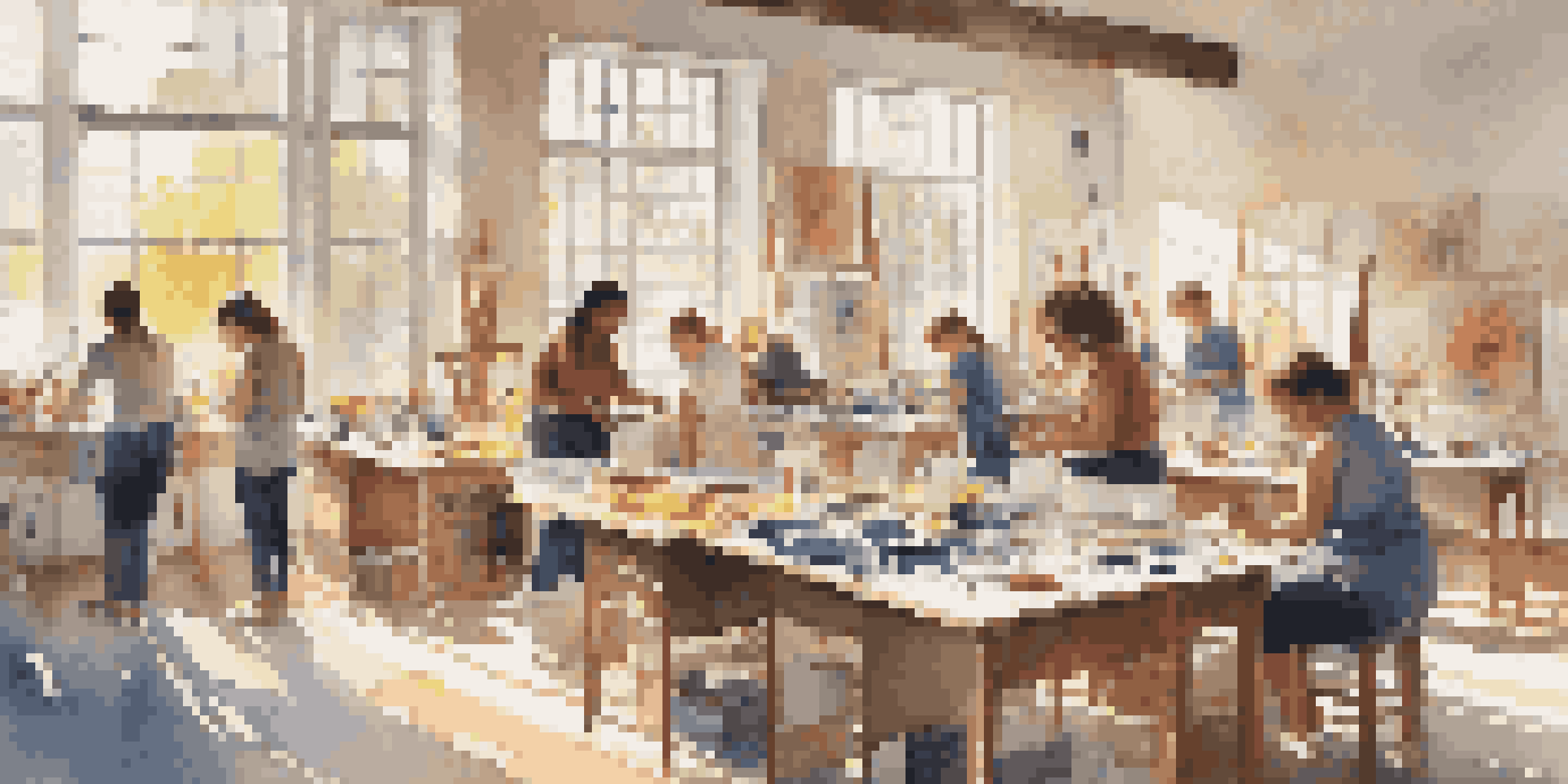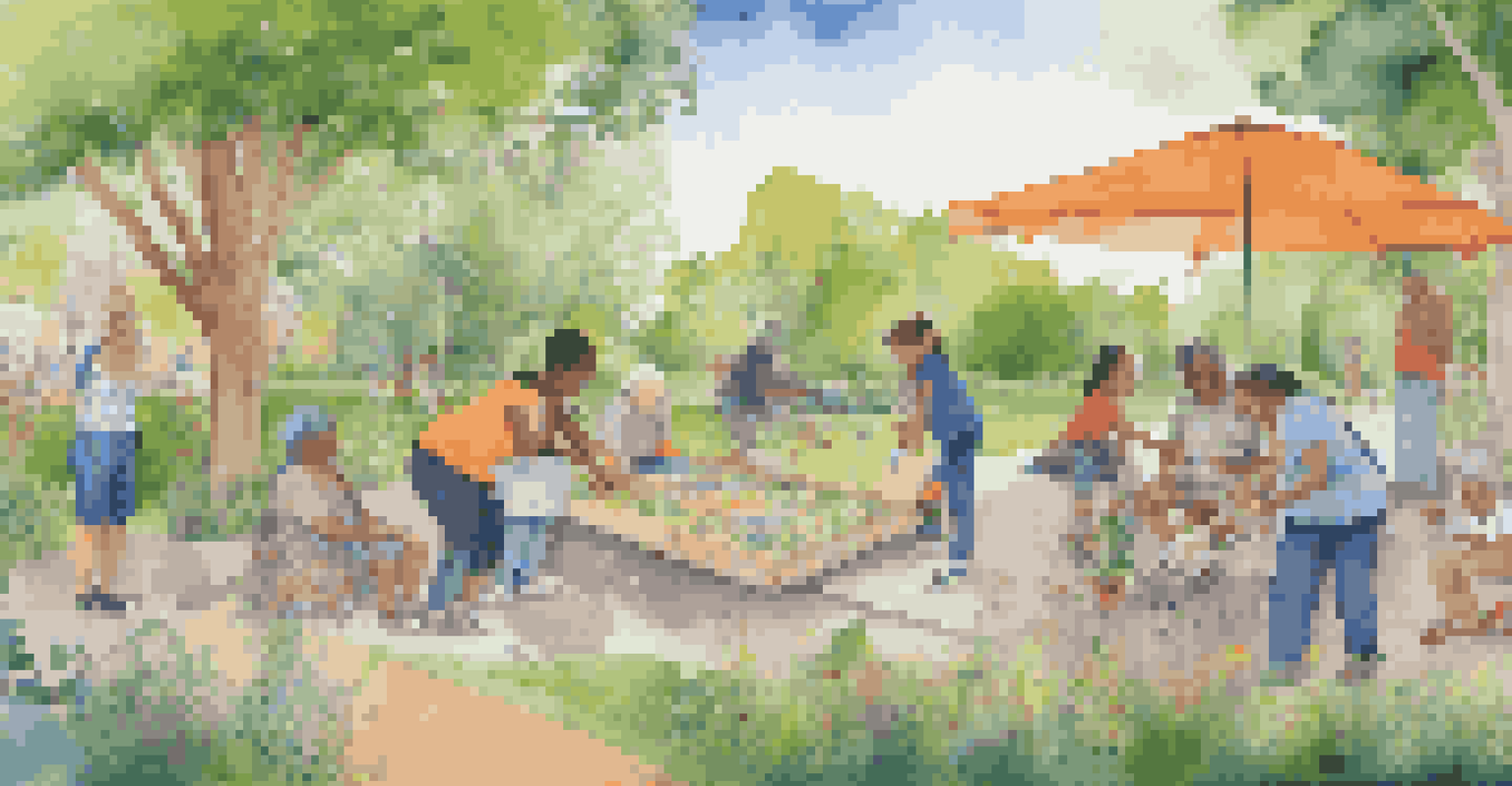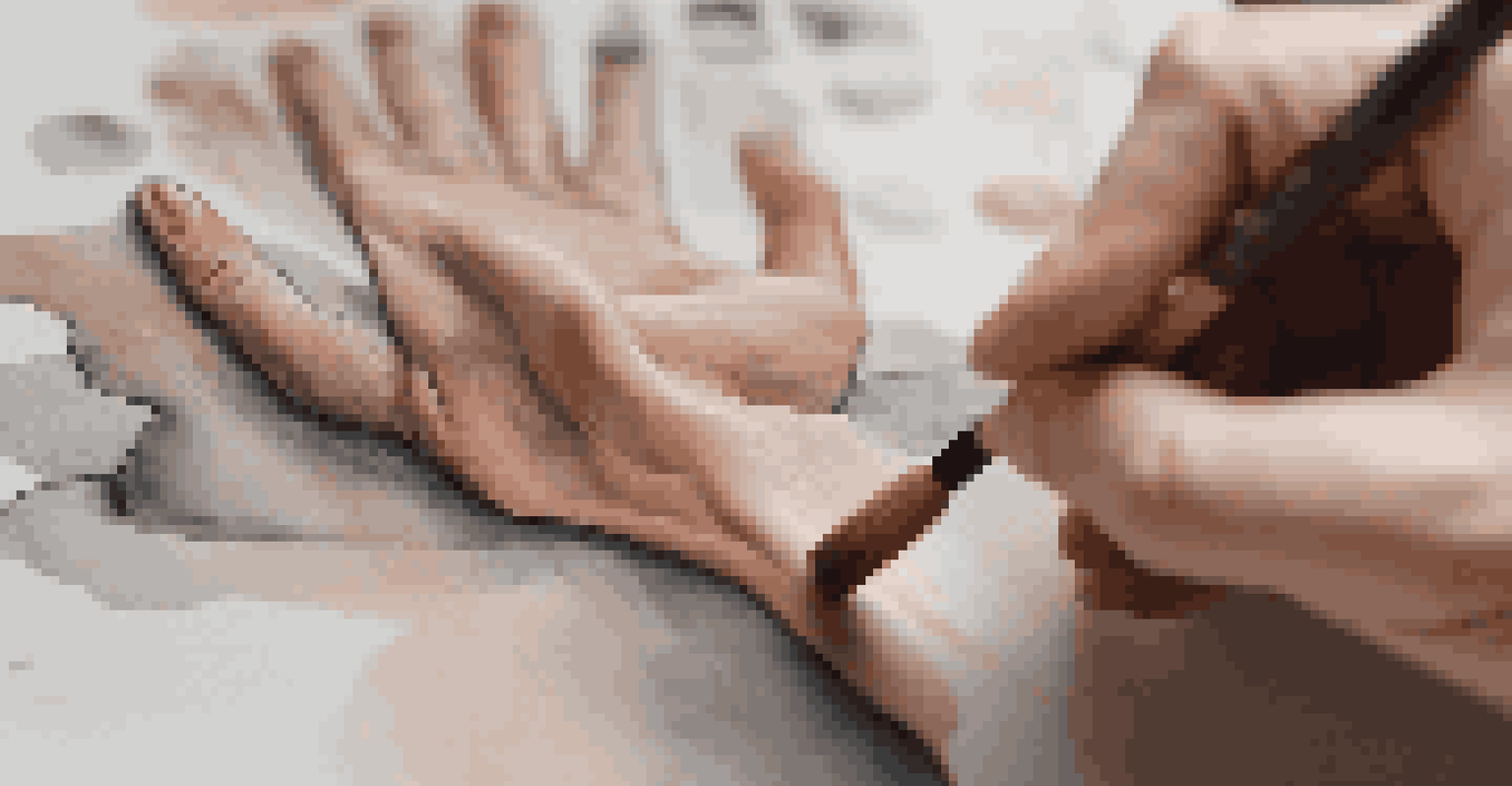The Impact of Art Workshops on Mental Health Awareness

Understanding the Connection Between Art and Mental Health
Art has long been recognized as a powerful tool for self-expression. It serves as a medium through which individuals can explore their feelings and experiences. This connection between creativity and mental health is profound, allowing people to articulate emotions that may be difficult to verbalize.
Art is not freedom from discipline, but disciplined freedom.
When we engage in artistic activities, whether painting, sculpting, or crafting, we often enter a state of flow. This immersive experience can reduce stress and anxiety, making art an effective therapeutic outlet. It creates a safe space where individuals can confront their feelings without judgment.
Moreover, art can foster a sense of community among participants. By sharing their creations and stories, individuals can form connections, combatting feelings of isolation that often accompany mental health struggles.
The Rise of Art Workshops in Mental Health Initiatives
In recent years, art workshops have gained popularity as part of mental health initiatives. Many organizations have recognized the benefits of creative expression in promoting mental well-being. These workshops often cater to diverse age groups and backgrounds, making art accessible to all.

Participants in art workshops can experience cognitive and emotional benefits. Not only do they learn new skills, but they also gain confidence in their abilities. This boost in self-esteem can be transformative, especially for individuals dealing with mental health challenges.
Art as a Mental Health Tool
Art provides an effective outlet for self-expression, helping individuals articulate emotions and reduce stress.
Additionally, art workshops provide a structured environment where attendees can explore their creativity at their own pace. This flexibility allows for personal reflection and growth, essential components in any mental health journey.
How Art Workshops Raise Mental Health Awareness
Art workshops serve as platforms for raising awareness about mental health issues. By focusing on creativity, they create engaging conversations around topics that are often stigmatized. Participants can share their stories, which helps to normalize discussions about mental health.
Every artist was first an amateur.
Through collaborative projects, participants can visualize their emotions and experiences, bringing attention to mental health challenges. This shared process fosters empathy among individuals, helping to break down barriers and misconceptions surrounding mental health.
Furthermore, these workshops often incorporate educational elements, such as discussions about mental health resources. By providing information alongside creative activities, they empower participants to take charge of their mental wellness.
The Therapeutic Benefits of Artistic Expression
Engaging in art can be incredibly therapeutic. The act of creating allows individuals to release pent-up emotions and frustrations in a constructive way. This process can lead to increased emotional resilience and better coping strategies.
Artistic expression can also serve as a distraction from negative thoughts and feelings. When individuals focus on their creative projects, they can momentarily escape from stressors, which is vital for mental well-being. This reprieve can lead to a fresh perspective on challenges.
Workshops Foster Community
Art workshops create a supportive environment where participants can connect and share their experiences, combating isolation.
Moreover, the tactile nature of many art forms—like painting or clay modeling—can have calming effects on the mind. The physical act of creating can be meditative, helping to reduce symptoms of anxiety and depression.
Bridging Generations Through Art Workshops
Art workshops often bring together people from different generations, fostering intergenerational connections. These interactions can be particularly beneficial for younger participants, who can learn from the experiences and wisdom of older generations.
Sharing creative experiences allows for the exchange of ideas and perspectives. It encourages a sense of belonging, which is crucial for fostering mental health. When people feel connected, they are more likely to seek help and engage in discussions about mental health.
Additionally, these workshops can help combat age-related loneliness. By participating in collaborative artistic projects, individuals can find common ground, reinforcing the idea that mental health awareness transcends age.
Success Stories: Real Lives Transformed by Art
Many individuals have experienced profound transformations through art workshops. For instance, participants often report feeling more empowered and less isolated after creating and sharing their art. These success stories highlight the tangible impact that art can have on mental health.
One participant shared how painting became a lifeline during a challenging period in their life. It provided not just a creative outlet but also a means to connect with others facing similar struggles. These anecdotes serve as powerful testimonials to the efficacy of art in improving mental well-being.
Success Stories Inspire Change
Personal testimonials from art workshop participants highlight the transformative power of creativity in enhancing mental well-being.
Such stories inspire others to explore creative avenues, showing that art can be a catalyst for change. When people see the positive effects of art on mental health, they may be more inclined to participate in workshops themselves.
The Future of Art Workshops in Mental Health Awareness
As mental health awareness continues to grow, the future of art workshops looks promising. More organizations are likely to incorporate creative programs into their mental health initiatives. This trend reflects a wider recognition of the importance of holistic approaches to healing.
With advancements in technology, virtual art workshops are also emerging, making creative outlets accessible to even more individuals. This expansion can reach those who may not have been able to attend in-person workshops due to geographical or mobility constraints.

Ultimately, the integration of art into mental health awareness efforts can lead to lasting societal change. As more people engage in artistic expression, we may see a shift in attitudes toward mental health, fostering a culture of understanding and support.